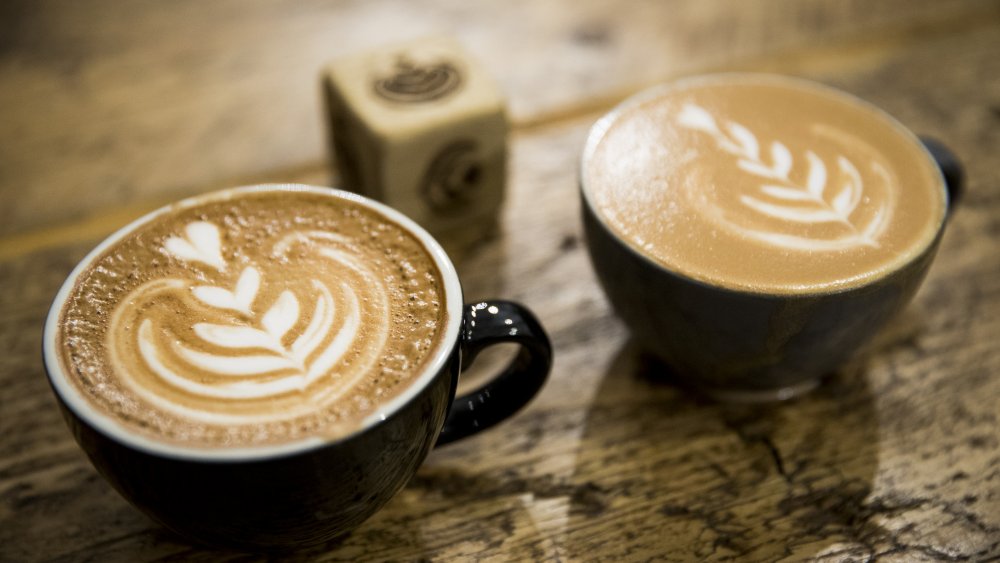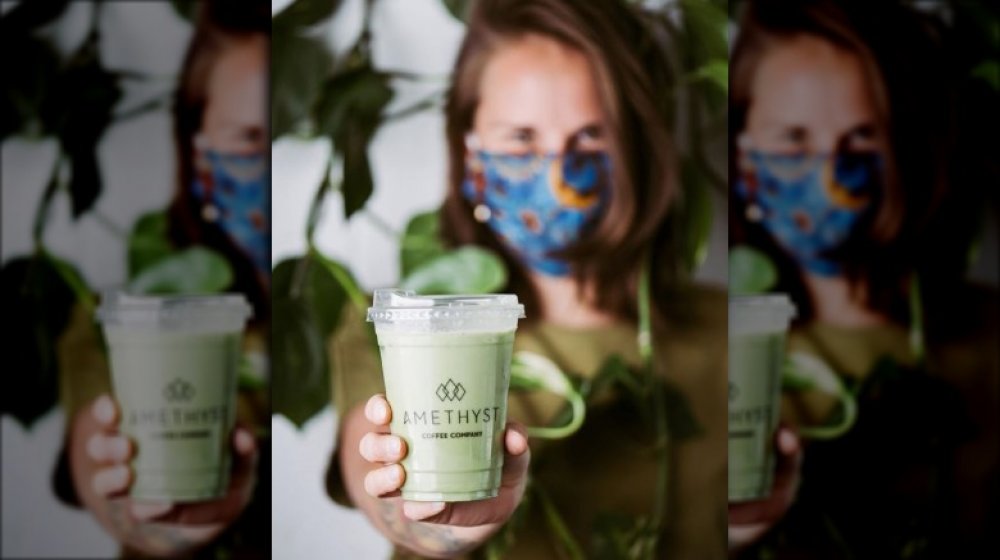The Surprising Reason This Cup Of Coffee Costs $9
Would you pay $9 for a soy milk mocha? No? How about if are were told not to tip, and you were giving a barista a chance to live above the poverty level? If you thought Starbucks' prices were too high — and a lot of people do (via CustomerThink) — then prepare for real sticker shock if you ever visit one of Amethyst Coffee Company's four Denver locations. Amethyst is taking the debate over raising the minimum wage into its own hands, according to CNN, by aiming to pay its employees $50,000 a year. The only way to do that, of course, is to raise prices. When the Amethyst cafes re-emerged from the pandemic shutdown in May, the menu featured the same great drinks at much higher prices. A latte was 50 percent more expensive, up from $4.50 to $6.75. The old mocha was $5.50. Now, that same mocha will cost you $7.50 — $9 if you want non-dairy milk in that, CNN reported.
At the same time, customers are being told not to tip. Depending on how generous people were with their tips, the price hikes could amount to just 20 or 30 percent, Amethyst said on Instagram. As for the employees, getting $50,000 a year is the equivalent of $27 per hour in a 35-hour workweek. Before the price increase, employees got $12 an hour plus $9 in tips, Amethyst said.
The culture created by tipping is abusive
Amethyst doesn't have a lot of sympathy for customers who told them via social media that the coffeehouse's prices are too high. People these days are willing to pay $12 for a cocktail or a glass of wine — so why not $7.50 for a quality mocha?
"By saying that you wouldn't pay $7.50 for a mocha you are effectively de-valuing the coffee itself and the labor of a barista," Amethyst told customers on social media. "You are saying that the barista doesn't deserve a quality of life that is subject to people tipping or not."
Eliminating tips is not just a consequence of Amethyst's new pricing strategy. It's an important part of the plan. The interaction between a barista and the customer is by its very nature abusive, Amethyst management believes. Tipping culture puts baristas in the awkward position of having to make the customer happy in ways that aren't on the menu. "It is problematic that baristas do so much unpaid emotional labor at a price that is subject to the guest's discretion," the company said.
A case can be made for abolishing tipping. Outside the U.S. and Canada, many restaurants don't expect you to tip (via Inc.) Also, studies have shown tipping culture to be not only sexist, with the harassment female servers often endure from customers, but also racist. White servers tend to get better tips than black servers, according to Inc.

